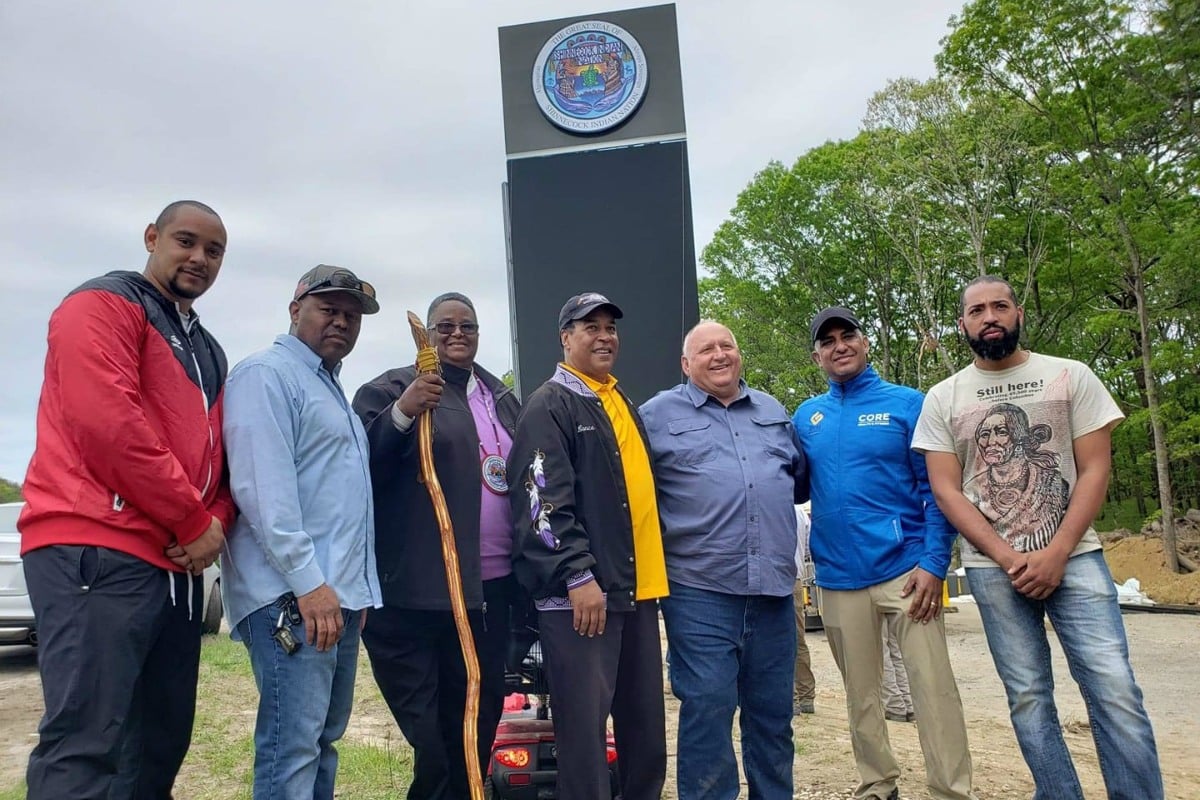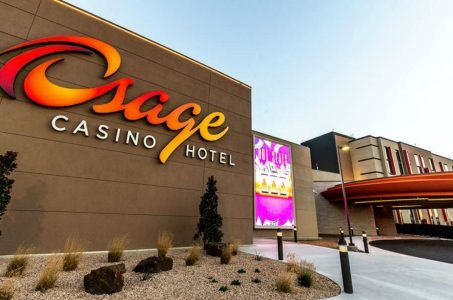New York Shinnecock Indian Nation Passes Gaming Resolutions, Long Island Tribe Has Strong Ally
Posted on: August 29, 2019, 10:03h.
Last updated on: August 31, 2019, 01:19h.
The Shinnecock Indian Nation on Long Island has passed two gaming resolutions for the tribe to explore the possibilities of opening a casino venue in the picturesque area.

Newsday, a media outlet covering Long Island’s Nassau and Suffolk counties, says the tribe voted 137 to 9 in favor of a resolution that partners the Native American group with real estate developer and Hard Rock Atlantic City part-owner Jack Morris. The Shinnecock people additionally backed a decree that allows its leaders to draft and submit a gaming ordinance proposal to the National Indian Gaming Commission (NIGC).
The Shinnecock Indian Reservation rests at the entrance to the Hamptons, just south of the Route 27 Sunrise Highway/Southampton Bypass – the main artery to Long Island’s easternmost edge, where many of New York’s elite have summer vacation homes.
The Native American group has been deliberating moving forward with gaming for many years.
Tribal Hurdles
The Bureau of Indian Affairs (BIA) gave federal recognition to the Shinnecock Indian Nation only in 2010. The decision came after years of lawsuits, which dated back to 1978.
The tribe is interested in building a Class III casino – which would require a gaming compact with the state. Federally recognized tribes can operate Class I and II games (bingo, pull tabs, scratch-offs) on their sovereign lands. But for the all-important slot machines and table games, they must strike deals with their host states.
Route 27 is already heavily congested throughout much of the year, which is why the tribe wants to put its theoretical casino somewhere away from its reservation. That could prove difficult, as should the Shinnecocks purchase land elsewhere, federal authorities might not be able to take it into trust.
New York State has a moratorium on new commercial casinos until 2023. So, the Shinnecock Nation’s casino – should it wish to proceed quickly – would need to be an Indian venue.
The Indian Reorganization Act of 1934 says the Department of the Interior can only take newly acquired tribal lands into trust for Native Americans that were federally recognized at the time of the law’s passing – and can additionally prove historical ties to the property in question.
However, numerous federal lawsuits have challenged that mandate, with the cases making their way to the Supreme Court with varying results.
One such ongoing challenge is in nearby Massachusetts, where the Mashpee Wampanoag Tribe is arguing it has the right to build a $1 billion casino resort on land it acquired in 2015. The Wampanoag group only received federal recognition in 2007. The DOI has rejected placing the land into trust.
Powerful Partner
The Shinnecock Nation has a strong ally in Morris. The New Jersey native partnered with fellow businessman Joe Jingoli and the Seminole Tribe to transform the shuttered Trump Taj Mahal in Atlantic City into the Hard Rock at a cost of more than $1 billion.
The Shinnecock aligning with Morris could hint that the Seminoles, perhaps the most powerful tribe in the country, could be interested in collaborating on a Long Island casino.
Related News Articles
Most Popular
LOST VEGAS: The Foster Brooks Robot at MGM Grand
Bally’s Sets Date for Tropicana Las Vegas Implosion & Party
Most Commented
-
VEGAS MYTHS RE-BUSTED: You Don’t Have to Pay Resort Fees
— August 2, 2024 — 16 Comments -
VEGAS MYTHS RE-BUSTED: Elvis Was a Straight-Up Racist
— August 9, 2024 — 11 Comments -
ANTI-SOCIAL BEHAVIOR: Vegas Casino Buffet Stunt in Poor Taste Goes Viral
— August 16, 2024 — 7 Comments -
VEGAS MYTHS RE-BUSTED: The Strip Tried Appealing to Families and Failed
— August 23, 2024 — 7 Comments
















No comments yet